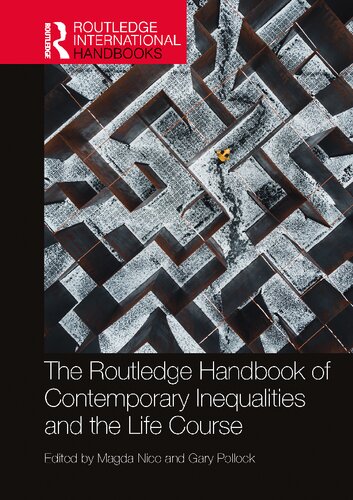

Most ebook files are in PDF format, so you can easily read them using various software such as Foxit Reader or directly on the Google Chrome browser.
Some ebook files are released by publishers in other formats such as .awz, .mobi, .epub, .fb2, etc. You may need to install specific software to read these formats on mobile/PC, such as Calibre.
Please read the tutorial at this link: https://ebookbell.com/faq
We offer FREE conversion to the popular formats you request; however, this may take some time. Therefore, right after payment, please email us, and we will try to provide the service as quickly as possible.
For some exceptional file formats or broken links (if any), please refrain from opening any disputes. Instead, email us first, and we will try to assist within a maximum of 6 hours.
EbookBell Team

4.4
72 reviewsDrawing upon perspectives from across the globe and employing an interdisciplinary life course approach, this handbook explores the production and reproduction of different types of inequality across a variety of social contexts.
Inequalities are not static, easily measurable, and essentially quantifiable circumstances of life. They are processes which impact on individuals throughout the life-course, interacting with each other, accumulating, attenuating, reproducing or distorting themselves along the way. The chapters in this handbook examine various types of inequality, such as economic, gender, racial and ethnic inequalities, and analyse how these inequalities manifest themselves within different aspects of society, including health, education and the family, at multiple levels and dimensions. The handbook also tackles the global COVID-19 pandemic and its striking impact on the production and intensification of inequalities.
The interdisciplinary life course approach utilised in this handbook combines quantitative and qualitative methods to bridge the gap between theory and practice and offer strategies and principles for identifying and tackling issues of inequality. This book will be indispensable for students and researchers as well as activists and policy makers interested in understanding and eradicating the processes of production, reproduction and perpetuation of inequalities.